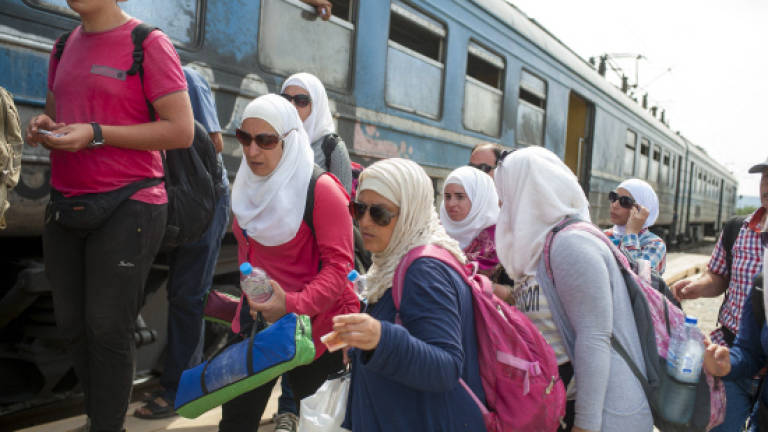Europe tracks army of 30,000 migrant smugglers

BRUSSELS: With the world still reeling from images of a drowned Syrian boy, European authorities say it is their top priority to fight an army of an estimated 30,000 people-smuggling suspects blamed for such tragedies.
Officials say the deadly business that may be worth billions of dollars is preying on the sheer desperation of growing numbers of people fleeing war and poverty in places like Syria, Afghanistan, Eritrea and Somalia.
Smugglers belonging to loose networks are increasingly using social media, well-organised routes and ruthless tactics to bring waves of refugees and migrants to Europe.
But there is new urgency in the wake of cases such as the death of three-year-old Syrian Aylan Kurdi – found lifeless on a Turkish beach after the smuggling boat carrying his family to Greece sank in the Aegean Sea – and the deaths of 71 people in an airless van on an Austrian highway.
"It is the top priority for sure, not only for Europol but for all member states," Robert Crepinko, head of the organised crime network at the European Union's police agency Europol, said.
"If you talk about the whole range of illegal migration across Europe, not only focusing on the Mediterranean, the number is 30,000 suspects."
The EU launched a new naval mission against people smugglers in the Mediterranean in July, starting with an intelligence-gathering phase, before readying to take military action against trafficker' boats, mainly off the Libyan coast.
The naval mission and Europol say they are cooperating through an office in Sicily to identify and dismantle networks of smugglers bringing migrants across the Mediterranean.
Crepinko added Europol will shortly open a cell in Piraeus, Greece, to tackle smuggling from Turkey.
But as only 3,000, or one-tenth, of the 30,000 suspects in Europe are specifically involved in moving people across the Mediterranean, Europol's remit also covers other routes including the increasingly popular western Balkans into Hungary.
Migrant smuggling – combined with human trafficking for sexual and labour exploitation – now earns organised criminal gangs more than weapons and the drugs trade, according to the EU border control agency Frontex.
"It's probably the most profitable business there is," Frontex spokesman Izabella Cooper said.
Smugglers are increasingly resorting to Facebook and other social media to advertise their services, negotiate prices, and arrange travel venues and times for migrants, the officials said.
Meanwhile, rescuers in Cyprus today saved over 100 refugees fleeing the Syrian war after their boat ran into trouble overnight off the Mediterranean island, authorities said.
The 114 Syrians, including 54 women and children, had been aboard a small fishing boat about 40 nautical miles from the southern Cypriot port of Larnaca at the time they struck trouble, said a source in the island's Joint Rescue Coordination Centre.
The alarm was raised late on Saturday night, prompting the police and army to launch a rescue operation, police said.
Investigations are complex, with Europol's Crepinko saying smugglers of different nationalities and religions operate in "fluid" groups who come together when there is business.
He cited the example of an alleged 16-member ring that was broken up in Greece recently with the arrests of two Romanians, two Egyptians, two Pakistanis, seven Syrians, one Indian, one Filipino and one Iraqi.
The gang allegedly smuggled mainly Syrians from Turkey to Greece via sea, air and land to Europe, providing the migrants with falsified documents, and making an estimated €7.5 million (RM36.04 million) during the few moths it was operating. – AFP